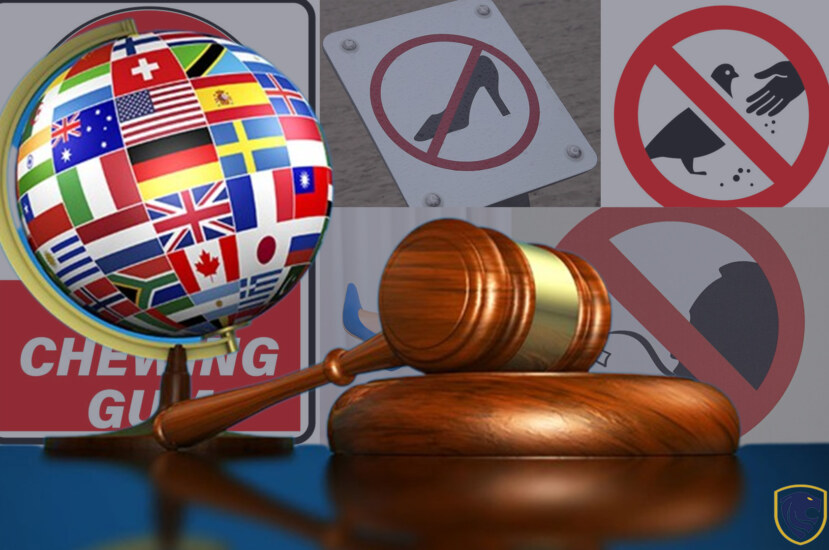Rules are a common protocol in every country. Rules are set to maintain a violence-free society. But there are some rules in some countries which will cringe you for sure. Today we are going to explore some of those unusual laws. When exploring them we can see that those weird laws are not weird at all. All of those laws have solutions for the problems that different countries are experiencing.
Canadian Radio Stations Must Play Canadian Artists
All Canadian radio channels are required by law to play music by Canadian artists for at least 35% of their airtime on weekdays between the hours of 6 a.m. and 6 p.m.
Private radio stations in both French and English that were founded in 1932 contributed to the foundation of Canadian national radio. Also, they had a significant impact on the development of the country’s public broadcasting system. Radio merged public and private spaces to engage a large cross-section of Canadians by broadcasting in both French and English. This allowed for social and political conversation and debate to take place in Canadian homes.

Canadian Radio Stations Must Play Canadian Artists ;Craziest Laws Around The World.
A new regulatory authority, the Canadian Radio-television and Telecommunications Commission, was established in 1967. CRTC required radio stations to broadcast Canadian music. Because Canadian artists forced CRTC to make such a law.
No Chewing Gum In Singapore
The government of Singapore has brought a law to stop their people from chewing gum in public places. I know, it sounds pretty weird. When visiting Singapore, are you considering chewing gum? Well, forget about that concept right away. Since 1992, chewing gum has not been sold, owned, or used in Singapore. Anyone detected carrying or distributing them faces a hefty fine of USD 100,000. In addition, they can be put under a two-year jail sentence.

No Chewing Gum In Singapore
Now you might be wondering why this government had to make such a law. As we all know Singapore is a country that has lots of rules to conserve nature. So, chewing gum is prohibited in the nation by law since they take a long time to degrade and continues to accumulate in the environment. However, the rule was significantly loosened in 2004 and allowed anyone to purchase chewing gum as long as they obtained a valid prescription from a physician.
No Weird Names For Babies Denmark
Personal names are governed by a fairly strict rule in Denmark. This is done to prevent giving strange names to kids. Parents in Denmark have access to a list of names. If the child’s parents want to give them a name that isn’t on the list, they will need to obtain special consent from their neighborhood church. And after that, government officials will evaluate the name. By German legislation, the d’s gender must be indicated in the first name, which also cannot serve as a last name. Additionally, regulations protect uncommon Danish last names.

No Weird Names For Babies Denmark ;Craziest Laws Around The World.
No feeding Birds in Venice
The government of this country has made feeding pigeons prohibited. But why did they restrict feeding such an innocent creature?
The most recent estimate states that there are 100,000 pigeons in Venice, which is about double the number of people living there. That crowd is on bridge buttresses, sits along rooftops, stand atop columns and arches, and is seen everywhere. They crowd out the docks of gondolas and foot boats to neighboring islands as they lurk in café doors and on hotel stairs.

No feeding Birds in Venice
The Basilica, the church that dominates Piazza San Marco on the main island, and other churches and buildings all have some weeks to them. Moreover, the numerous sculptures of winged lions, the symbol of St. Mark, haven’t managed to escape their spell.
The majority of city residents were relieved by the decision to outlaw feeding. But some were negatively impacted. Such as the vendors, outraged at having their livelihoods cut off, were forced to look for other work. Furthermore, the tourists, though they can still enjoy the company of birds, may do so for likes and retweets; and the pigeons themselves, who are now frequently seen hopping into bars and cafes to seek out whatever food may have a that can feed them.
Forgetting your wife’s birthday in Oceania Samoa may lead to imprisonment

Forgetting your wife’s birthday in Oceania Samoa may lead to imprisonment ;Craziest Laws Around The World.
I must say that though it sounds crazy, this is a really good law to have. Isn’t it? It reports that in Samoa, a husband may be sentenced to a prison sentence if he unintentionally forgets his wife’s birthday. According to Samoan law, if a husband forgets his wife’s birthday unintentionally, it becomes a crime. And if the woman complains to the police, the husband might end himself in jail.
According to rumors, a husband will receive a warning from the police if he forgets his wife’s birthday for the first time. However, if the spouse commits the error once more, jail time is certain as punishment. According to travelers, Samoa is a gorgeous little island. But irresponsible men may find it to be a horrible place.
The curfew on flushing toilets in Switzerland.
This is the weirdest law so far, isn’t it? What would a government have to bring their laws to the domestic toilets? Well, let’s find out.

The curfew on flushing toilets in Switzerland.
While flushing toilets is undoubtedly legal, the Swiss authorities did declare that it is prohibited to “be noisy and disturb your neighbors” between the hours of 10 p.m. and 6 a.m., also known as the curfew in Switzerland. Authorities have since clarified that this is also a legal requirement in Germany and other nations.
Additionally, some rental agreements do limit the use of noisy equipment like washing machines, dishwashers, and dryers, even if banning the use of showers and toilets is a bit severe. Also, let’s just state that no one loves to be awakened in the late evening by the washing machine of their neighbors, even though that isn’t a general rule.
Wearing High Heels to the Acropolis
You have to be careful about the shoes that you are going to wear on your vacation to Greece. According to Greece law, no shoes with pointed heels are allowed to wear in the Parthenon.

Wearing High Heels to the Acropolis ;Craziest Laws Around The World.
High heels are not permitted at several historic monuments in Greece, notably the Odeon of Herodes Atticus. The restriction went into force in 2009. According to a Culture Ministry spokesman, “Female visitors must wear shoes that will not cause damage to the monuments. People must recognize that these monuments have a deteriorating skin.”


